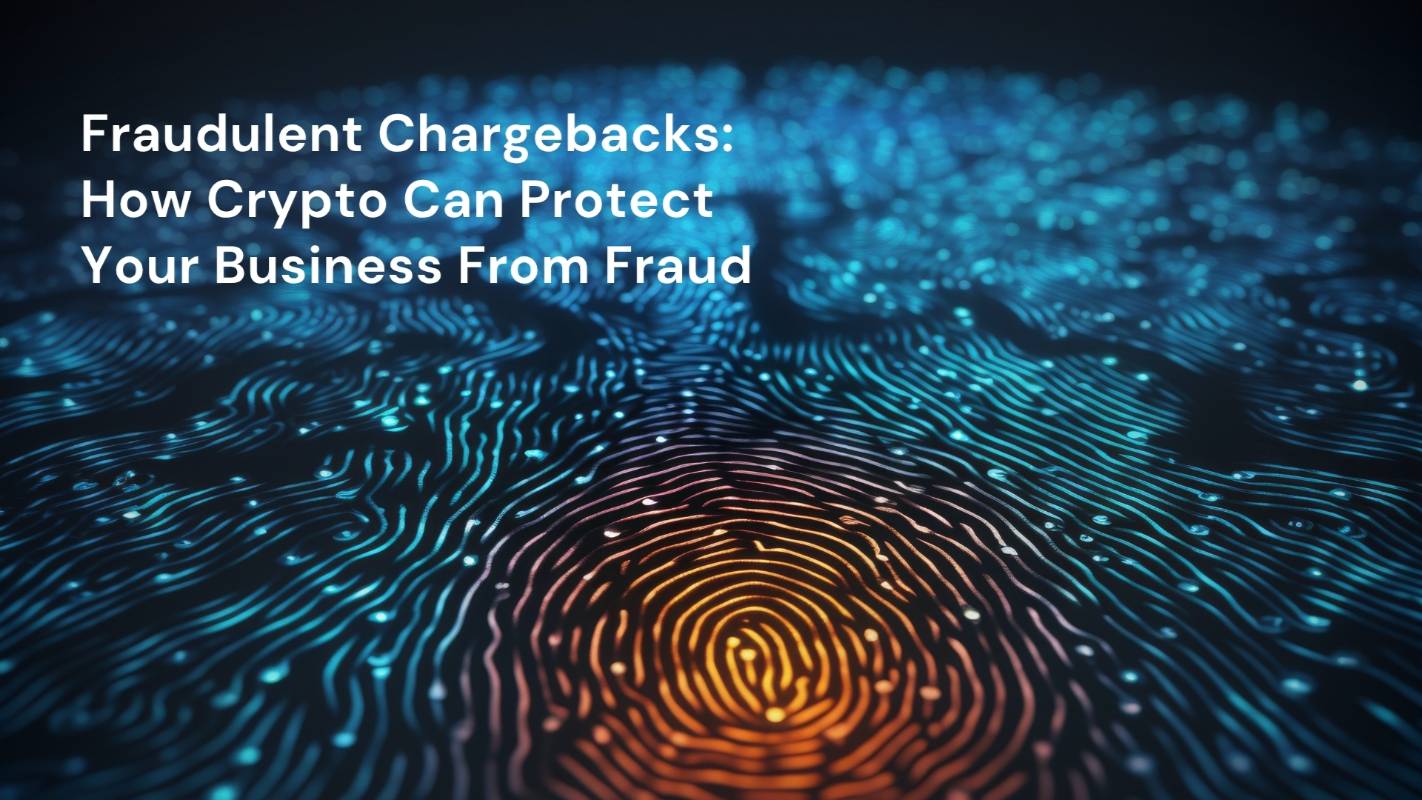In the rapidly expanding digital marketplace, fraudulent chargebacks pose an insidious threat, silently eroding business profits.
What are fraudulent chargebacks?
Fraudulent chargebacks occur when a customer disputes a legitimate transaction with their bank, claiming unauthorised use of their payment method. This process leads to the reversal of the original transaction, resulting in a financial loss for the merchant. During this scenario, the merchant not only loses the revenue from the sale but may also incur additional fees associated with the chargeback process. Simply put, chargebacks can severely impact your cash flow and profitability.
Common causes of chargebacks
Several factors contribute to the occurrence of chargebacks. Common causes include:
- Customer fraud: A customer may falsely claim they did not authorise a transaction to receive their money back without returning the product or service.
- Merchant error: Mistakes during transactions, such as billing errors or failure to deliver products, can lead customers to seek refunds through chargebacks.
- Unclear billing descriptors: If a payer does not recognise a charge on their statement due to vague descriptions, they may dispute it.
- Friendly fraud: Sometimes, customers who are aware of the transaction may dispute it anyway, seeking refunds while intending to keep the purchased item.
While vigilance and robust management strategies are crucial for mitigating chargeback damage, traditional systems inherently carry this risk. For a truly secure payment environment that eliminates chargebacks at their root, consider implementing a crypto payment gateway like Bitpace.
The impact of chargebacks on businesses
Chargebacks pose significant challenges for businesses, especially in the dynamic world of digital transactions. They result in substantial financial losses and can severely damage a company’s reputation within the payment ecosystem.
Financial consequences
Financially, chargebacks represent direct losses due to reversed payments, which can range from £20 to £150 per transaction in fees. Each disputed transaction not only costs the merchant but also detracts from valuable resources allocated for dispute management and fraud detection. Businesses often incur additional expenses when investing in chargeback insurance. This insurance provides protection but requires compliance with strict terms and documentation. This financial drain can escalate to hundreds of millions annually across the industry.
Excessive chargebacks raise a merchant’s risk profile, potentially resulting in being categorised as high-risk by credit card networks. This classification can lead to increased processing fees, fines, or even termination of merchant accounts. Businesses must take proactive measures to manage chargebacks effectively or face severe financial consequences.
Reputational damage
Reputational damage serves as an indirect consequence of high chargeback rates. When your chargeback ratio exceeds industry standards, it can diminish your credibility among partners and payment processors. Hesitation from these entities often arises when dealing with businesses perceived to have high risk due to chargebacks. This loss of trust could lead to limited growth opportunities and reduced customer loyalty.
Customers typically prefer to engage with businesses that demonstrate a secure and reliable payment process. A history of frequent chargebacks can raise red flags, leading to increased scrutiny of transactions and customer interactions. Furthermore, transactions that appear fraudulent or problematic may compel payment processors to impose additional fees or tighter restrictions on your business. To maintain a positive reputation, consider leveraging a crypto payment gateway, such as Bitpace, which eliminates chargebacks through the finality of crypto transactions. This solution not only safeguards against financial losses but also helps uphold your company’s integrity in a competitive market.
The role of crypto in preventing fraud
Crypto offers a robust solution to the challenges posed by fraudulent chargebacks in traditional payment systems. By utilising the unique attributes of crypto, businesses can safeguard themselves against a variety of fraudulent activities.
Advantages of crypto transactions
- No chargeback risk: Crypto transactions are final and irreversible. Once processed, there’s no opportunity for buyers to reverse payments, eliminating the risk of fraudulent chargebacks.
- Transparent audit trail: Every transaction recorded on the blockchain possesses tamper-proof properties. This transparent ledger facilitates easy tracking and quick resolution of potential disputes while providing undeniable proof of payments.
- Privacy and security: Personal data remains secure during transactions. Instead of revealing sensitive information, users engage through cryptographic addresses, which significantly reduces threats of identity theft or fraud.
- Reduced costs: The finality of crypto transactions decreases the administrative burden. Companies no longer incur losses associated with chargebacks, prompting better financial health and resource allocation.
Blockchain technology explained
Blockchain technology constitutes a decentralised, digital ledger documenting every cryptocurrency transaction. Each entry contains cryptographic signatures linking it to prior transactions, forming a secure chain. This tamper-proof technology provides a public record, fostering trust among users as transparency serves as a foundation for fraud prevention.
Moreover, once a transaction is recorded on the blockchain, altering or deleting it becomes impossible. The security measures in blockchain infrastructure ensure that your financial dealings remain safe, discouraging fraudulent activities. By employing a reliable crypto payment gateway like Bitpace, you can seamlessly integrate this technology into your business operations, enhancing security and efficiency. The transparency and security of blockchain yield significant advantages, fostering confidence in both merchants and customers alike.
Implementing crypto solutions
Implementing a crypto payment system can improve your business’s endurance against fraudulent chargebacks. Leveraging crypto technology offers a strategic advantage, enabling businesses to protect themselves from financial losses associated with chargebacks.
Choosing the right crypto
Selecting the appropriate crypto is crucial for maximising benefits. You may consider well-established cryptocurrencies like Bitcoin and Ethereum, which offer robust security through their blockchain technology. Focus on transaction speed, as some cryptocurrencies process payments faster than others. For example, Bitcoin can take approximately 10 minutes, while Ethereum typically processes transactions within seconds. Evaluate transaction fees, too, since low fees can significantly impact your bottom line. Ensure compatibility with your business model; the chosen crypto should meet your operational requirements. Formulating a clear strategy based on these factors will position you to make informed decisions that facilitate growth and deter fraudulent activities.
Integrating crypto payment systems
Integrating a crypto payment gateway, such as Bitpace, into your business operations simplifies accepting crypto. The integration process is designed for simplicity: the gateway automatically generates unique crypto addresses for each transaction, allowing customers to send payments directly. Once confirmed on the blockchain, the system instantly notifies you, completing the transaction seamlessly and without manual intervention. This inherent irreversibility eliminates chargeback risks, simplifying your operations. Manage customer deposits effortlessly through a user-friendly interface that aggregates all reports in one location. Automate conversions to fiat currencies if necessary, ensuring financial flexibility. The added benefit of 24/7 availability means you can transact without restrictions, regardless of geographical barriers. Embracing this technology positions your business as an innovative leader while enhancing security and operational efficiency.
Conclusion
Embracing crypto as a payment method can significantly fortify your business against the threat of fraudulent chargebacks. By opting for a crypto payment gateway, you not only improve transaction security but also streamline your payment processes. This innovative approach allows you to focus on your business growth without the looming concern of chargebacks.
With the unique features of cryptocurrencies offering finality and transparency, you can foster trust with your customers while securing your financial interests. As you navigate the evolving digital marketplace, integrating crypto solutions can position you as a forward-thinking leader, ready to tackle the challenges of modern commerce.
Start accepting crypto payments with Bitpace’s crypto payment gateway
Get paid in Bitcoin, Ethereum, Litecoin, and many more established cryptocurrencies with Bitpace crypto payment gateway. Reach out now to start accepting crypto payments.





